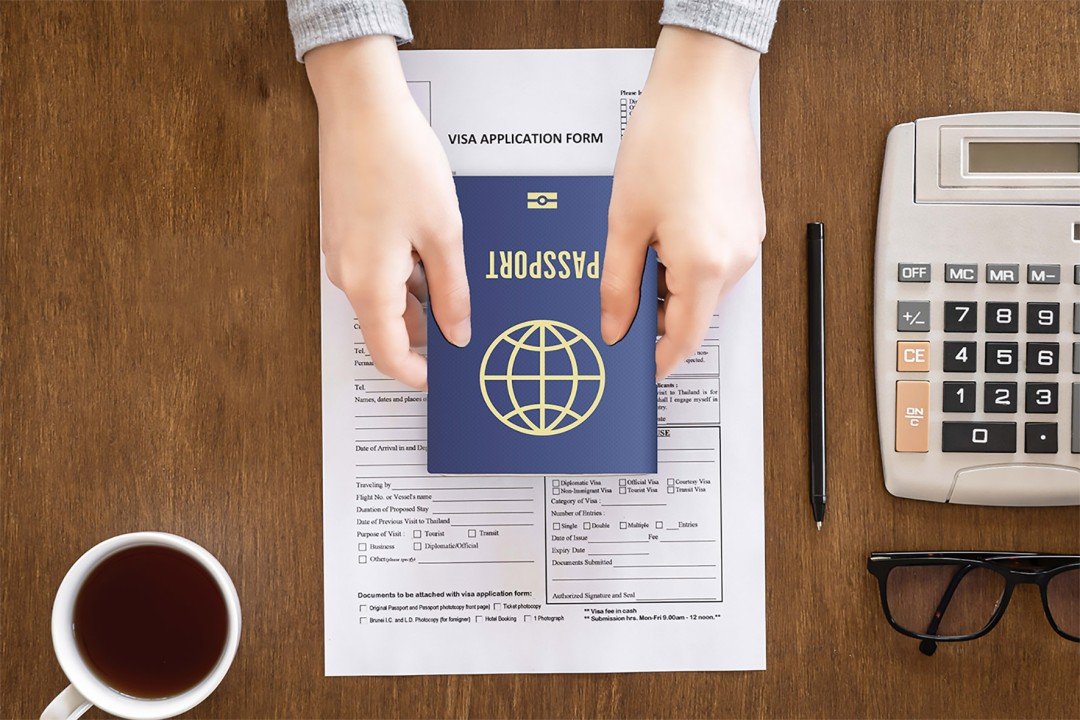When applying for a visa, whether for travel, study, or work, the application process can be overwhelming. Many applicants get discouraged by the complexity of the requirements and the possibility of rejection. However, a well-prepared and complete visa application can significantly increase your chances of approval. Strengthening your visa application involves paying attention to detail, understanding the requirements of your specific visa type, and ensuring that you meet all criteria set by the embassy or consulate. In this article, we’ll explore practical tips that can help you strengthen your visa application, from understanding the necessary documentation to preparing for your visa interview. These steps will provide you with a clearer path to securing your visa and making your travel plans a reality.
Understand Visa Requirements
Before you even start preparing your visa application, it’s crucial to understand the specific requirements for the visa you’re applying for. Each type of visa—whether tourist, student, work, or business—has its own set of rules and documentation requirements. Some may require additional forms, medical tests, or background checks, while others may focus heavily on your financial stability or travel plans. By researching and thoroughly understanding these requirements, you can avoid mistakes that could lead to delays or rejection. Take time to visit the official embassy or consulate website to find out the exact documents you need to submit. Also, consider checking forums or speaking with individuals who have successfully gone through the visa process for your country, as they can provide valuable insights. The more informed you are, the smoother the application process will be.
Prepare Supporting Documents Carefully
One of the most important aspects of strengthening your visa application is providing all the required documents in a clear and organized manner. Visa authorities need to verify your identity, financial stability, travel purpose, and ties to your home country. Ensure that you have all required documents such as your passport, visa application forms, proof of financial support, travel itinerary, invitation letters, and any other documents that are specifically required for your visa type. It’s essential to submit these documents in the correct format (originals or certified copies) and make sure they are up-to-date. Take extra care in translating documents if necessary. For example, some embassies may require bank statements from the past three months, or they might need official letters from your employer. Organizing these documents properly and presenting them in a neat and professional manner can help you make a great first impression with the visa officer, giving you a better chance of approval.
Show Financial Stability
One of the most common reasons for visa denials is insufficient financial proof. Many visa types, especially tourist and student visas, require applicants to demonstrate that they have enough funds to support themselves during their stay. Financial stability assures the embassy or consulate that you will not be a financial burden on the host country. This may include showing your bank statements, proof of income, employment letters, and even sponsorship letters if someone else is funding your trip. In some cases, you may need to provide proof of your financial background for the past few months or even years, depending on the visa type. Make sure to provide all necessary documents showing that you can cover accommodation, transportation, and other expenses while abroad. Be transparent and accurate when submitting financial documents; any discrepancies could lead to a rejection.
Explain Your Travel Intentions Clearly
Embassies and consulates need to know your exact reason for traveling and whether you plan to return to your home country after your trip. For this reason, it’s important to provide a clear explanation of your travel intentions in your visa application. You can do this through a well-written cover letter or a statement of purpose, where you explain why you are visiting, your itinerary, and your plans upon returning. For instance, if you’re applying for a student visa, you should mention your educational goals, your chosen university or school, and how it aligns with your career aspirations. Similarly, if applying for a tourist visa, describe the places you intend to visit and how long your stay will be. Providing a clear, honest, and detailed explanation of your travel intentions helps reassure the visa officer that your visit is legitimate and temporary.
Provide Strong Ties to Your Home Country
Demonstrating your strong ties to your home country is one of the most effective ways to strengthen your visa application. Visa officers are concerned about applicants overstaying their visa or immigrating illegally. By proving that you have significant reasons to return to your home country, you show that you have no intention of overstaying your visa. Strong ties can include a stable job, family relationships, property ownership, or any long-term commitments that would motivate you to return home after your trip. For example, if you’re employed, you can provide a letter from your employer stating that you are on leave and will return to your position after your trip. If you own property or have a family, documents proving these connections can also help strengthen your case. By emphasizing your ties to your home country, you reduce the likelihood of being viewed as a potential immigrant.
Follow Visa Interview Tips
Many visa applicants are required to attend an interview as part of the Strengthen visa application process. The interview is an important opportunity for you to clarify any points on your application and convince the visa officer that you meet the requirements. Preparation is key to success in a visa interview. Practice answering common interview questions confidently and truthfully. Be prepared to explain your travel plans, your financial situation, and any documents that may need further clarification. Dress neatly and maintain a professional demeanor throughout the interview. Answer questions clearly and stay calm, even if the questions feel challenging. Avoid providing vague answers or being overly nervous, as these behaviors might raise concerns about your credibility. If you’re well-prepared, the interview process will feel much less intimidating and could play a crucial role in the success of your application.
Double Check Everything Before Submission
Before submitting your visa application, take the time to double-check everything. Review all forms and documents to ensure they are complete, accurate, and up-to-date. Common mistakes such as missing signatures, incorrect information, or outdated documents can delay or even cause your visa application to be denied. Create a checklist of the required documents and review each one carefully. If you’re unsure about any aspect of the application, consider seeking advice from a trusted source, such as a visa consultant, to ensure everything is in order. It’s also a good idea to give your application to a friend or family member to review. Fresh eyes can often catch mistakes you might have missed. Taking this extra step could prevent costly delays and ensure your application is in the best possible shape.
Seek Professional Assistance if Needed
While many applicants manage to submit their visa applications on their own, others find it beneficial to seek professional assistance. If you find the visa application process complex or overwhelming, hiring a visa consultant or immigration lawyer can be a worthwhile investment. These professionals can help you understand the requirements, ensure that your documents are correctly prepared, and even assist with the interview process. Consultants and lawyers are familiar with the latest changes in immigration laws and policies and can provide valuable advice specific to your situation. While their services come with a fee, they can help streamline the application process and increase the chances of approval. If you’re uncertain about any aspect of the visa process, professional assistance can give you peace of mind and ensure that you submit a strong application.
Conclusion
A strong visa application can make all the difference between approval and rejection. By following the tips outlined above, you can ensure that your application stands out and meets all the necessary requirements. Understanding the visa requirements, preparing supporting documents carefully, showing financial stability, and providing clear explanations of your travel intentions are key components of a successful application. Additionally, demonstrating strong ties to your home country and following interview tips can further enhance your chances of approval. Double-checking everything before submission and considering professional assistance can help you avoid mistakes and increase your confidence throughout the process. With thorough preparation, you can significantly improve your chances of having your visa application approved and make your travel plans a reality.




